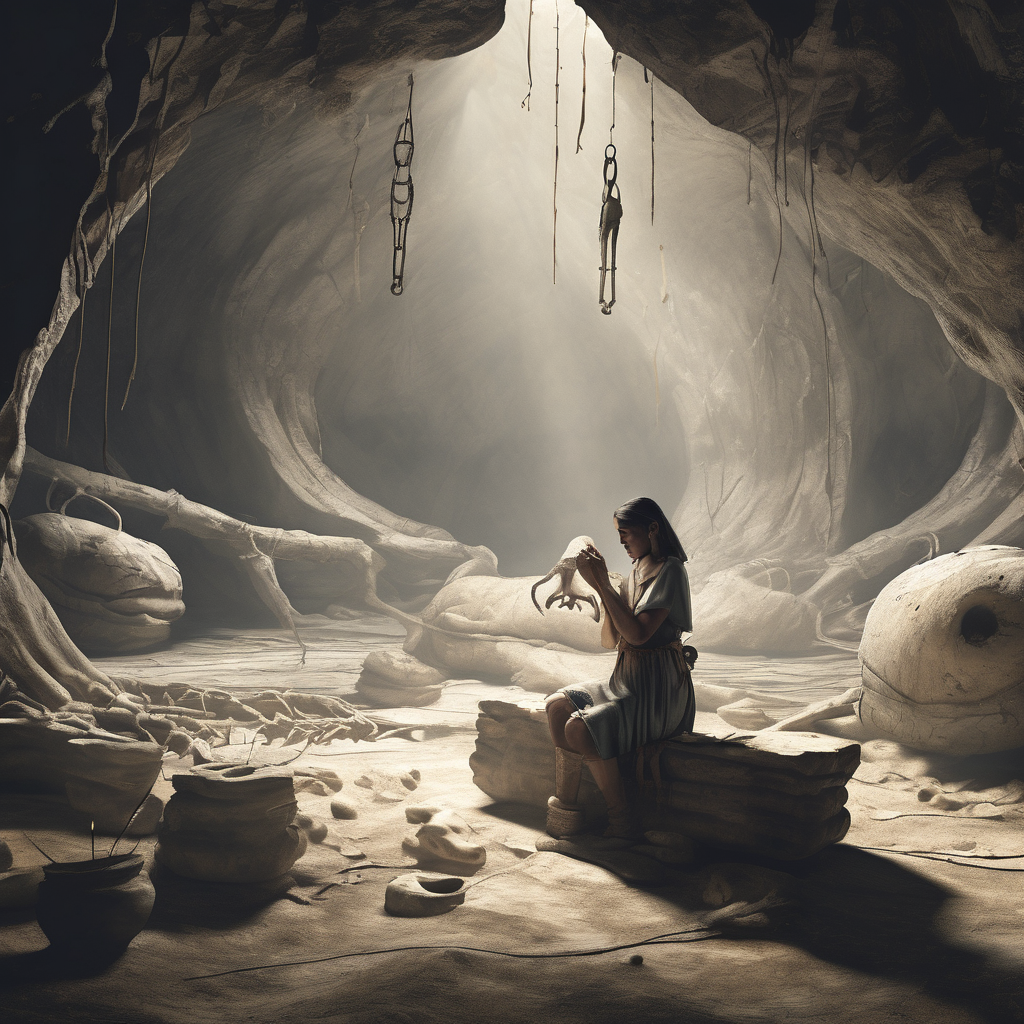Elara’s shop smelled of dust and beeswax, the clean, dry scent of old bone. People from three valleys over came for her artisanal work. They brought her the femurs of fallen deer, the jawbones of foxes, the delicate skulls of songbirds. Elara was a Bone Listener. She would hold a bone to her ear and hum, her throat a tuning fork for the faint, resonant memories trapped within. Then she would carve, not her own designs, but the patterns she heard: the swoop of a hawk’s final flight, the branching fear of a stag cornered by wolves, the placid lifetime of a field mouse. Her carvings were a form of wellness for the grieving, a way to hold a finished story in your hand.
But lately, the bones were quiet. A strange lethargy, which the village called “the Hush,” had descended. It wasn’t sadness, not precisely. It was a hollowing-out. The blacksmith’s hammer blows grew further apart. The weaver’s shuttle seemed to drag. The young people spoke of leaving for the coast, a slow, collective quiet quitting of the valley itself.
Old Maeve was the one who finally brought the truth to Elara’s door. She carried no small bone, but a map drawn on cured sheepskin.
“The Hush is older than us,” Maeve said, her voice raspy as corn husks. “It’s a generational ache. We’ve just gotten too tired to ignore it.”
She spread the map on Elara’s workbench. It depicted their valley, but with a ghostly skeleton overlaid. A spine snaked along the riverbed, ribs curved up to form the hills, and a great, horned skull was buried beneath the standing stones on the northern ridge.
“The First Hart,” Maeve whispered. “Legend says it died of a sorrow so vast the world could not contain it, so it laid itself down and let the world grow over it. Our homes are built on its grief. Our foundations are its fossilized heartbreak.”
Elara felt a cold dread, the kind that came from recognizing a truth you had deliberately ignored. She had felt it, hadn’t she? A low, thrumming misery that had nothing to do with the small lives of mice and foxes. It was a planetary groan, a bass note of despair.
“The bones are silent because they can’t be heard over it,” Elara said, understanding. “The Hart is… it’s doomscrolling through its own lonely eternity.”
“Exactly,” Maeve nodded. “And it’s taking us with it. This isn’t just about carving trinkets anymore, child. We need you to go to the source. To the vertebrae.”
The thought was paralyzing. Elara’s entire life had been defined by small, containable stories. This was an epic of geological sorrow. To face it felt impossible. For weeks, she resisted. She tried to busy herself, polishing old work, sorting knuckle-bones, but the shop felt like a cage. She knew this marked the end of her quiet era, the one spent hiding behind small talismans and smaller fears.
Finally, she took a single candle and Maeve’s map and walked to the river cave, the place the old map marked as the ‘Heart-Arch’. Inside, the air was cold and still. Following a narrow fissure, she descended into the earth. The smooth rock walls gave way to something else: colossal, curved bone. She was inside the ribcage of the First Hart. She walked for what felt like a mile until she reached the spine—a chain of fossilized vertebrae, each the size of a millstone, disappearing into the darkness.
She placed her palm on the nearest one. The vibration was immense, a shuddering cascade of loss. It wasn’t a memory; it was the ceaseless, ongoing experience of it. The sorrow of a being that remembered the first sunrise and had watched a billion sunsets alone.
Elara took a breath. She couldn’t carve this. She couldn’t contain it. She could only soothe it. She began to sing.
It was not a song of words, but of tones. A low hum that matched the Hart’s resonant grief, then slowly, carefully, began to lift its pitch. She sang of the moss now growing on its ribs, of the badgers that made their homes in the hollows of its joints. She sang of the village above, of the bread being baked, of the lovers kissing in the twilight, of the life that had sprung from its monumental sadness. She wasn’t trying to erase the sorrow, but to harmonize with it, to weave new threads of joy and purpose into its ancient tapestry. It was the ultimate bespoke lullaby, sung for a spine of stone and memory.
She sang until her throat was raw and her body shook with exhaustion. And then, for the first time in millennia, the deep, thrumming vibration beneath her hands began to soften. It didn’t stop, but it changed, the raw edge of pain rounding into something more like a deep, peaceful sleep.
When Elara emerged from the cave, blinking in the new dawn, the air was different. A palpable vibe shift had occurred. The light seemed crisper. In the distance, she heard the blacksmith’s hammer falling in a brisk, steady rhythm. The Hush was broken.
Maeve was waiting for her, holding a steaming mug. “True sustainability,” the old woman said, a smile cracking the lines on her face. “Not just of wood and wool, but of spirit. You sang its bones to sleep.”
Elara leaned against the ancient rock of the hillside, a rib of the sleeping Hart, and felt not a tremor of sorrow, but the slow, deep, restful breath of the world.

Leave a Reply